(Originally published in The Indian Express Sunday Magazine, 21st May 2017)
“What if you two drive off a cliff and die? All business is now done through internet and smartphones; and I have hardly learned to send an SMS,” Steve Lall said aloud with wonder. Apparently, he put this question to his daughter and son-in-law, to whom he had handed over the reins of Jilling Estate.
A self-described renegade with 72 summers behind him, Lall still laughs like a child and one can’t resist his infectious energy and warmth— never mind that he’s in a wheelchair, just off a three-month hospital stay. But for a bike accident, he was all set to travel to Australia for a biking trip, on the pretext of visiting his son.
Not surprising then, that Ben Fogle, famous English adventurer and TV host, featured Lall, his family and the Jilling Estate in his show Where Wild Men Live, on BBC Earth. Where else would you find a man who, as a fighter pilot, took his dachshund in the cockpit of a MIG fighter jet, hated taking orders from superiors, was court marshalled, and, somewhere along the way, climbed mountains and started a rustic life? Without giving up his love for biking across the length and breadth of the country.
Jilling Estate was on our list of places to visit for some years now. Though we were warned that Lall and family are very choosy about guests, we were reasonably confident of passing any entrance tests the Lalls would throw at us, before granting entry. The taxi from Kathgodam railway station dropped us at Matial village, and Ramlalji was waiting for us to carry our luggage and guide us up the trekking path. As Ramlal climbed up effortlessly with our huge luggage on his back, it dawned on us that living on the hills might help us defy our age too. We were panting, stopping frequently and sipping water all along the over-an-hour climb.
Jilling Estate, with its adjacent properties, covers over 100 acres of natural forests with rhododendron, oaks, chestnut and apricot trees, to name a few. Pines are abundant — as they are quick to take root and grow, most of the hills nearby are now covered with them, and the heterogeneity of the forest is lost forever. In Jilling, however, there is diverse flora, ferociously nurtured by the Lalls.

What can one do in Jilling? Take long walks along the many trails that crisscross the estate, soaking in fresh air, while a host of birds and butterflies give you company. You could spot sambars tearing off deeper into the jungle, startled by human sounds. Wild flowers of several varieties were in bloom at the end of March. A couple of trails lead to the ridge and evenings at the ridge make for spectacular sunsets. Mountain goats may do a show for you with their acrobatic jumps along the steep slope. And along the ridge to the east is the highest point in Jilling.
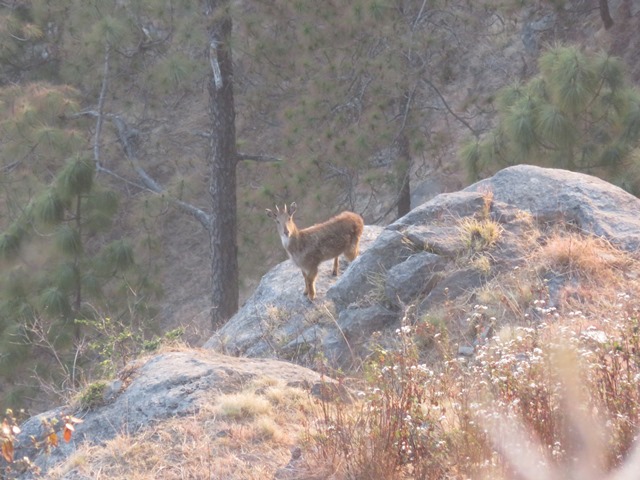
When we were not exploring the trails, birding or reading in the spacious verandah of our cottage, we dug into some very wholesome food or chatted with the Lalls and their friends who were visiting.
Spaced across the estate are five cottages, each with an allotted caretaker who serves food and helps in exploring the area. You can have the food served in the cottage, but we chose to have it with the Lalls whenever possible, and we got to know more about their adventurous life.
Jilling Estate was bought by Lall’s parents in the ’60s. After his Air Force days, Lall lived here for some time and found his soulmate, Parvati, a beautiful woman from a neighbouring village. His parents would not accept the union, so he left Jilling with his wife, and found employment at one of the tea plantations in West Bengal. But it didn’t take much time for the prodigal son to return, as his parents needed help in managing the estate.
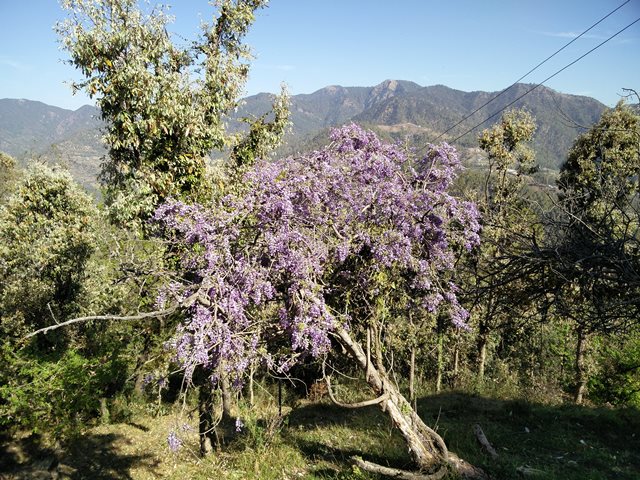
However, life in the estate wasn’t easy with no predictable income. A German diplomat and scholar, Mr Klaus, visited Lall in the ’90s and suggested the idea of a homestay. The revenue generated would help in the upkeep of the estate. He has since settled in a bungalow on the estate and is now considered a member of the family. One of the days, he came down to visit Lall and we shared a meal with him.
Parvati, Lall’s charming and industrious partner, still actively manages the field. We joined her in the fields one morning; she was enthusiastic about each tree, though somewhat worried about how she’d take care of them when the summer peaks. She happily showed us the various fruit trees and vegetables, but unfortunately, none of them were fruiting at that time. Perhaps, we need to spend every month in Jilling to taste each of its produce!
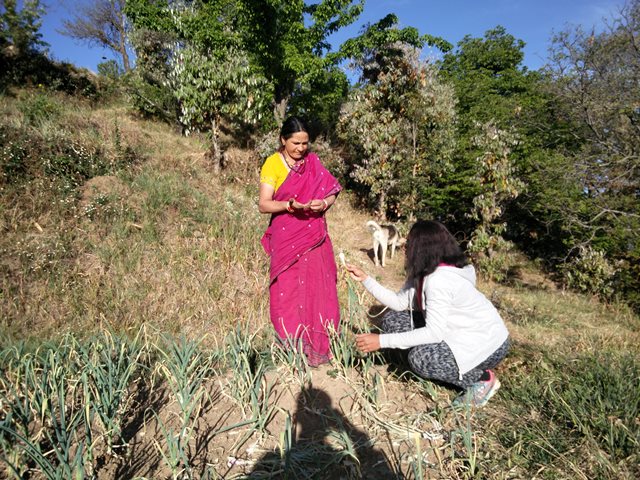
Our three days’ stay was blissful — far from noisy roads and honking vehicles, listening to birds in the woods, or, simply gazing into the valley and mountains beyond. As we walked down the trail, we couldn’t thank Lall enough for preserving a piece of forest for people like us to come and soak in, occasionally. It might take a village to raise a child, but in our times, it takes a renegade to save a forest.
(Jilling Estate is in Matyal village in Uttaranchal. You can take a train to Kathgodam from Delhi. From Kathgodam station it is about 35 kms to Matyal via Bhimtal. From Matyal village its about an hour of walking/climbing)

(Original article in Indian Express)
Also read:
Our stay with John & Family at Maplepine Farms, Meghalaya (Handmade Homes and Homemade Meals)
Our stay with Anil & Family at Kuflon Basics, Uttarakhand (Jab We Met @Kuflon Basics)
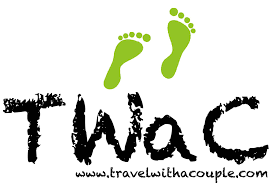
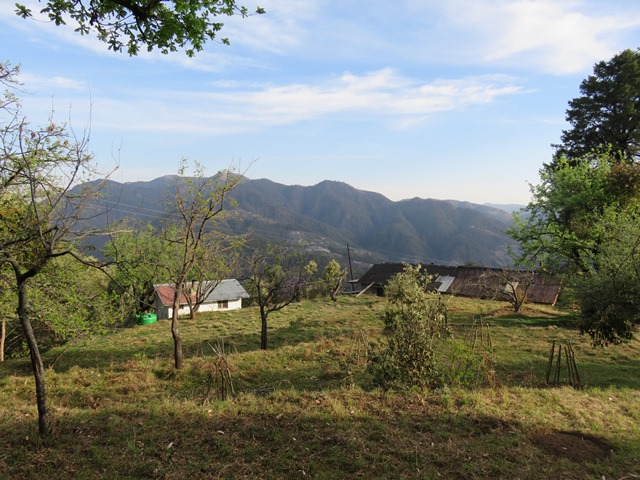
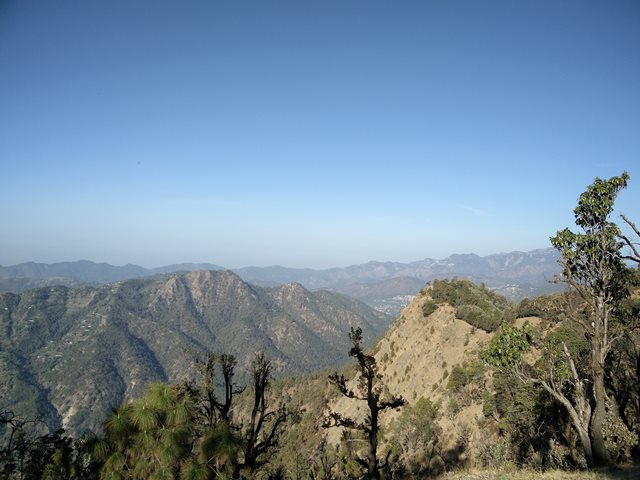

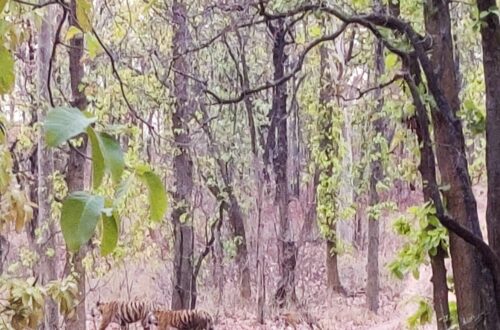
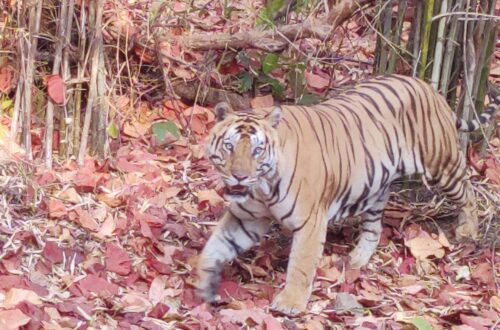
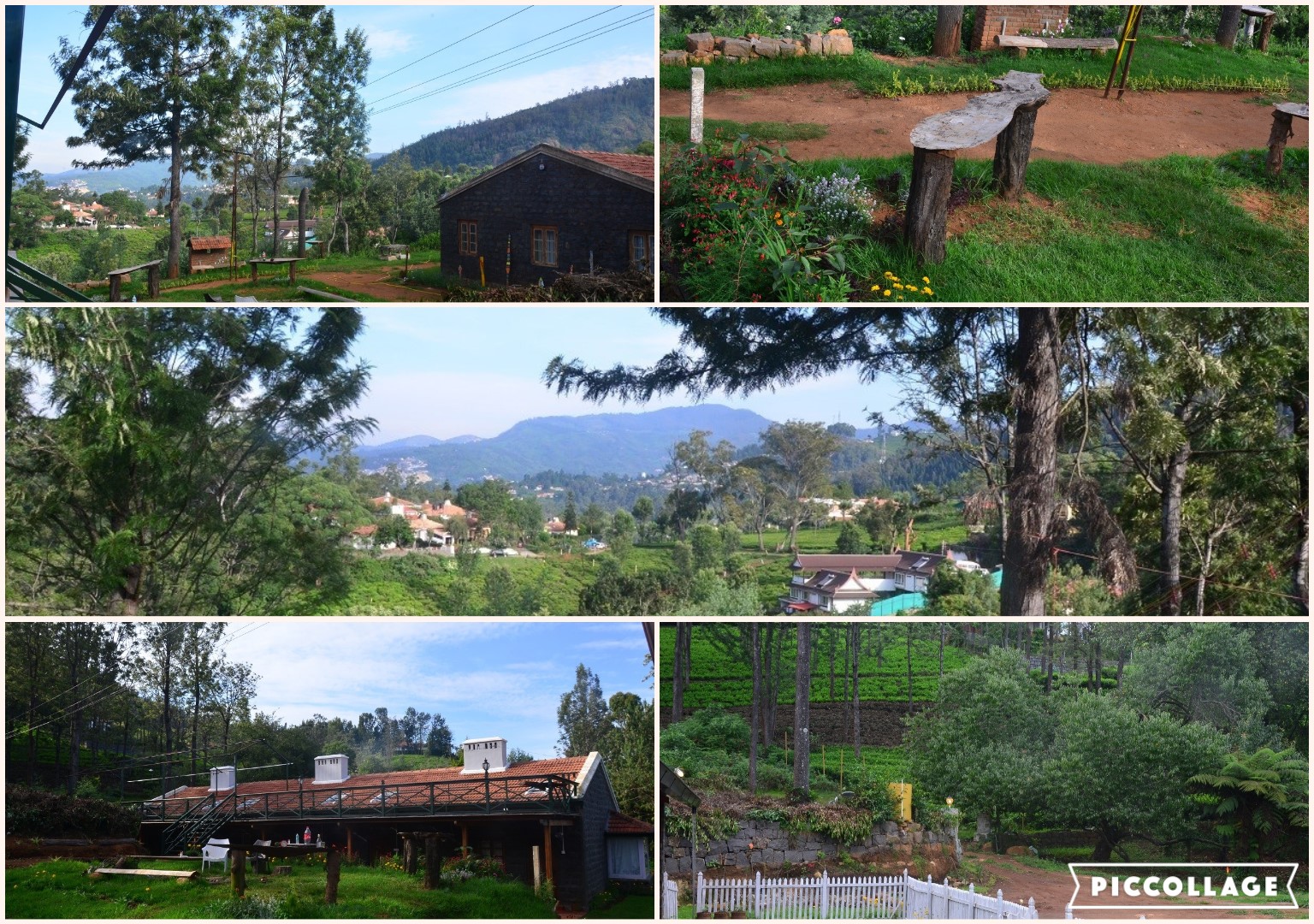
A beautiful place. Visited when the kids were younger. It was an unforgettable stay. We still talk about it and the kids remember every nook and corner and the dogs.
What a beautiful place… This is one I really want to visit now…
Waiting to meet up with the Lals now…. well narrated, indeed..
Waiting to pay a visit ever since I heard of Steve Lall and Jhilling Estate … inshallah soon 🙂
Waiting to pay a visit ever since I heard of Steve Lall n Jhilling Estate ….!!!
Very nicely described. Waiting to pay a visit ever since I heard of this place 3 years back